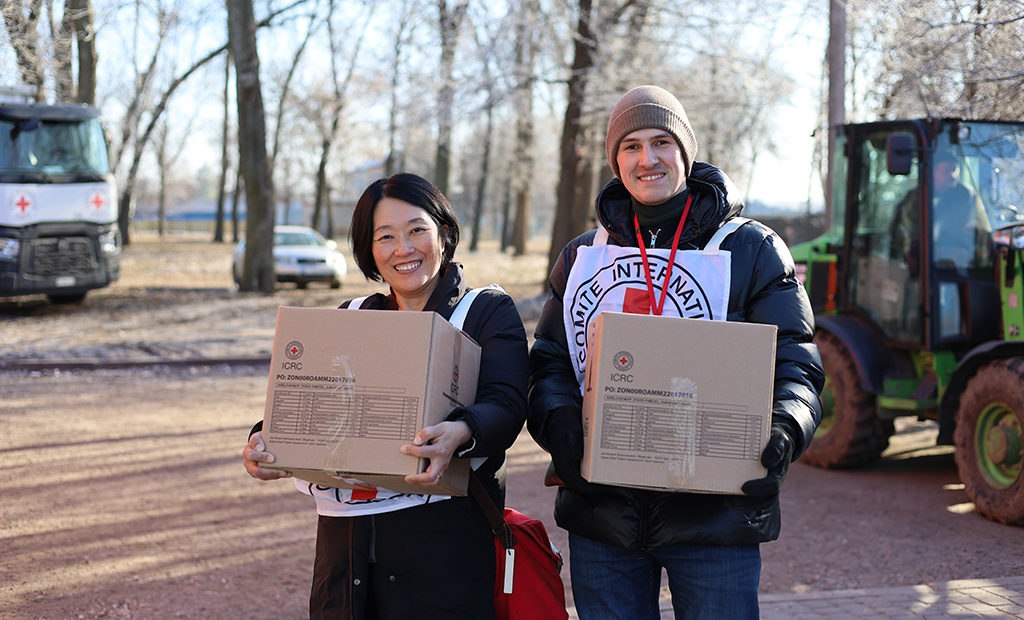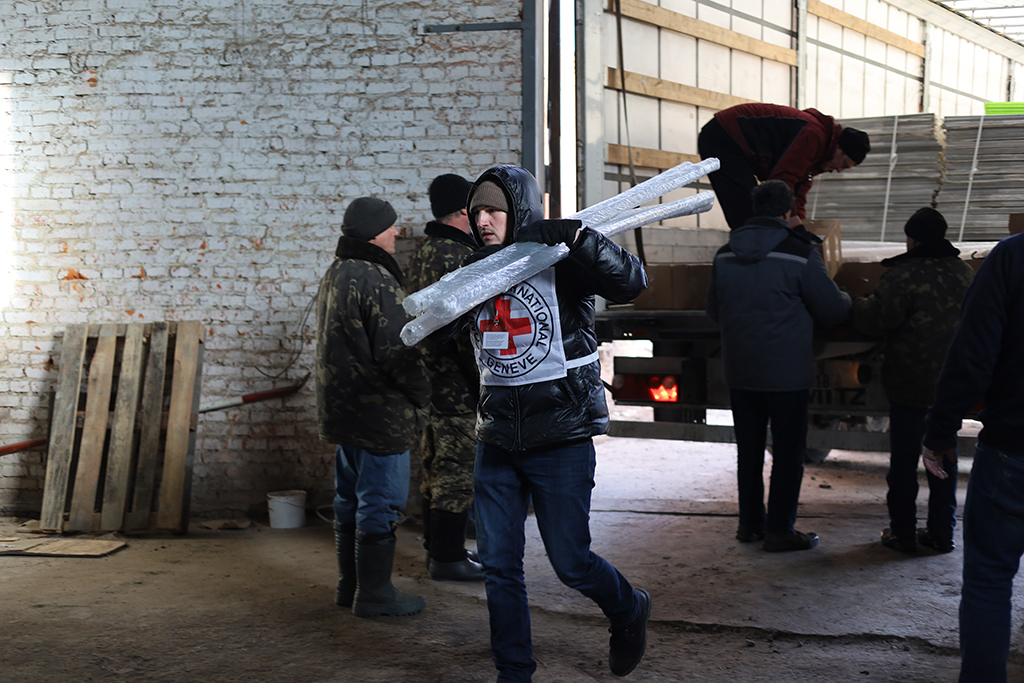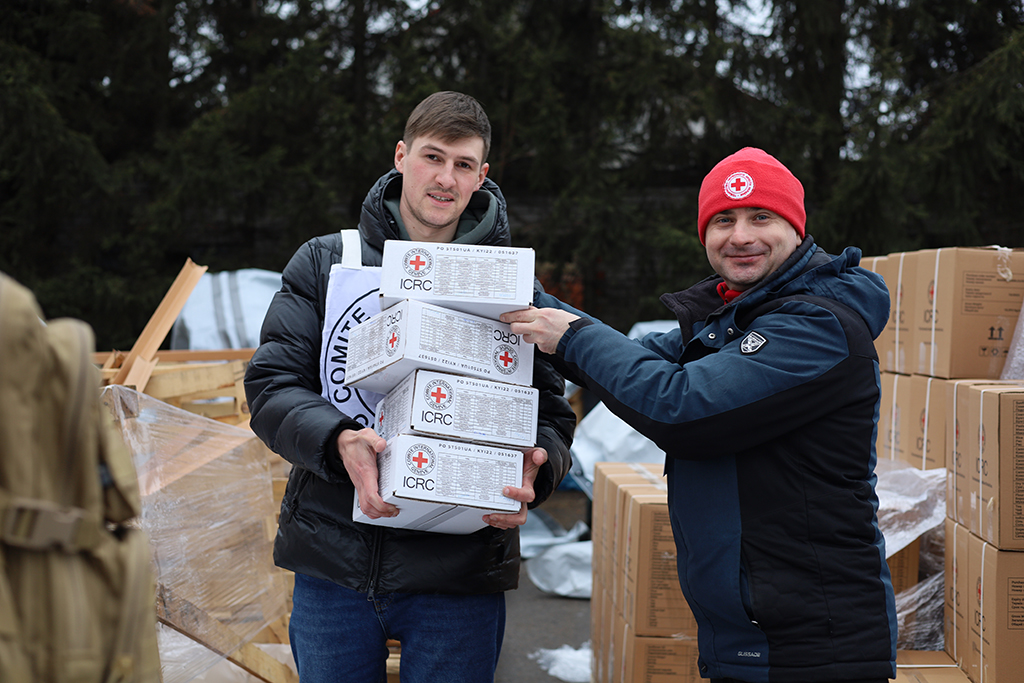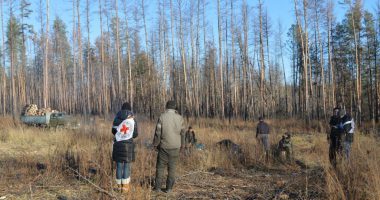“We are driving along a heavily damaged road to a small town in the north of the Kharkiv region. Behind us, there are several trucks carrying humanitarian aid, ahead, damaged houses, destroyed bridges and people who are still waiting, despite everything. Without electricity and heating. In the middle of a silent city with multiple traces of shelling. My work is not about myself but about such people.”
In his 30s, our colleague Timur Potyekhin worked as a teacher, has visited many countries, changed his occupation, and became an internally displaced person when an armed conflict began in Ukraine. We talked to him about how his work has changed not only his life but also the lives of hundreds of people from frontline towns and villages.
Before working at the International Committee of the Red Cross, I had a rather interesting career. I am an English teacher by profession, so I worked at Kharkiv universities. I also tried my hand at the hotel and restaurant business. Of course, I have travelled a lot and discovered new cities in various countries. And now, I’m travelling to different settlements in Ukraine. I wish, however, that I were on this particular trip under other circumstances.
My position here is as an Economic Security Generalist. Although I have worked at the ICRC for over three months, my work has acquired a completely different meaning since last year.
On the face of it, it looks like a routine activity: implementation of various programs and projects, their adaptation, evaluation, monitoring, and numerous distributions of humanitarian aid. But behind each of these actions, there are people in dire need of help: those who live amid the sounds of explosions every day, cannot satisfy their basic needs, have lost their jobs and stable income, but do not leave their homes. I know firsthand how difficult it is to pack your whole life into a suitcase and go somewhere without hope of returning home.
I understand that people’s needs during an armed conflict are not limited to one-time support. We must think strategically and work for the future: what will happen if we do this or that? How will it help to change the community’s economic situation and overcome the effects of the conflict for individuals?
“Therefore, we do not perceive work as a tedious process. No matter what we do, our work is a great responsibility.”
In the first weeks of working here, I realized that, in such positions, you can never do enough. There are no boundaries here. At any time, I can answer people’s calls because I know they are worried and need support, they need to know that they have not been forgotten.
It also helps one’s personal growth because our level of responsibility does not give us any right for a mistake. We try to be as careful as possible to respond to any request promptly, arrive in time at a particular village or settlement in the Sumy, Kharkiv or Poltava regions, and, despite obstacles, deliver much-awaited help.
My parents were somewhat concerned when I got a job at the ICRC. They knew that sometimes the work is very particular and that we have to go to locations near the frontline. But, of course, they understand how important it is for me to be here. Now they are happy that I have found a job I’m keen on, although I think they still worry before each field trip, even if they don’t say it. During this time, the ICRC has turned from an ordinary job into no less than a whole new life.
“Did I think that everything would turn out like this a few years ago? No. But every day, I realize that I am in the right place.”
Until February 24 last year, I lived and worked in Kharkiv but had to leave and move to Kyiv for a while. In mid-March, I visited my parents who lived in Kramatorsk, Donetsk region. I worried about them because they lived in constant danger, tension, and uncertainty. Over time, the city became increasingly restless, we heard shelling, woke up and went to bed to the sound of air-raid sirens. Therefore, we began considering where to go for safety and calm. My father spent many years in Poltava and has a lot of good memories of this city. So, we ended up here, hoping that we could start a new life.
I spend a lot of time with my family, catching up on the years when I was in a hurry to live and was away from them.
My father and I have taken up sports together, playing table tennis, and we also read scientific literature. Here, we learn to do what we never had time for back in our hometown.
To sum it up, right now, I’m beginning to live for real. My relatives are close, and I have a rewarding job and a strong team with whom the impossible becomes possible.







